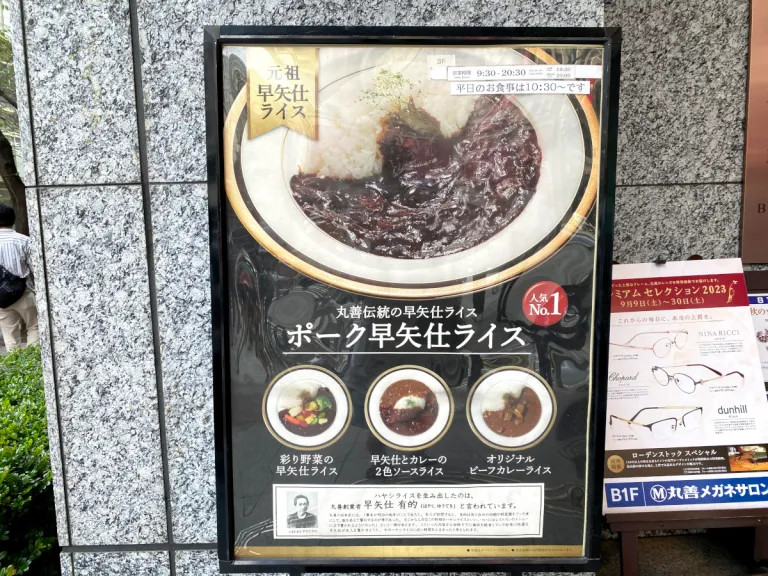
There’s a legend that ties the origin of this popular dish to one of Japan’s biggest bookstores.
Hayashi rice is a stew-on-rice dish that’s highly popular among Japanese families, since it’s so gosh darn tasty and kids love it. It’s sliced beef, mushrooms, and onions cooked in a thick demi-glace broth and served with rice. Though it’s tomato-based and considered “western style” cuisine, it’s unique to Japan and a well-loved comfort food.
Our Japanese-language reporter P.K. Sanjun is a huge fan of Hayashi rice himself, and he happened to learn something interesting about the history of the dish when he visited Maruzen, a major bookstore chain, in the Tokyo neighborhood of Nihonbashi.
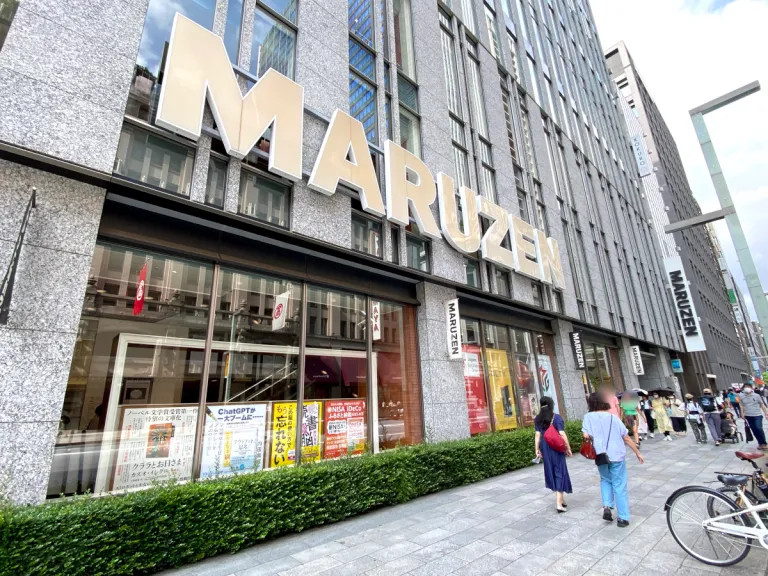
He had popped in to buy a book for his daughter when he saw a very interesting sign outside advertising the different Hayashi rice and curry dishes served at the Maruzen Cafe inside the bookstore. Though the food looked really tasty, what was most interesting was what was written at the bottom:
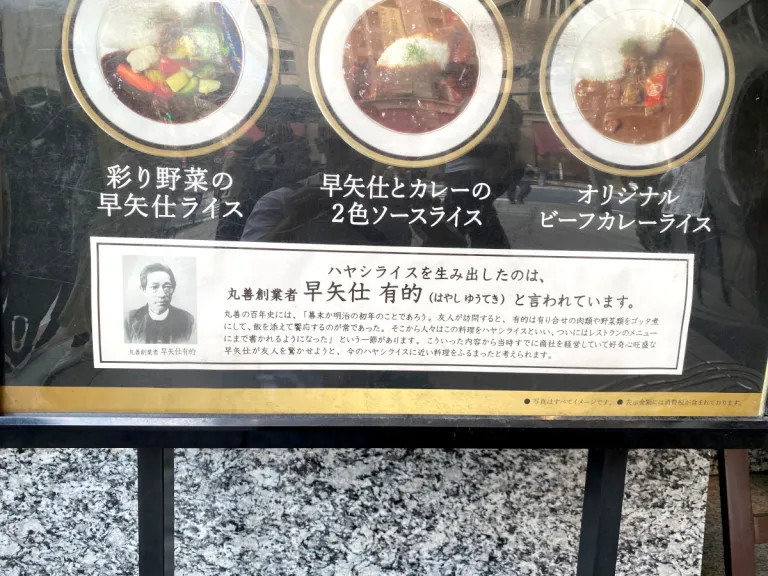
“It is believed that the one who created Hayashi rice was Yuteki Hayashi, the founder of Maruzen.
“According to a passage in Maruzen’s records from the last hundred years, ‘Sometime at the end of the Edo period or the start of the Meiji period, whenever friends would visit, [Hayashi] would use whatever meat or vegetables he had on hand to make a hodgepodge stew, which he served to them with rice. People called it “Hayashi rice”, a term that even started to spread to restaurant menus.’
“It is believed, based on this passage, that Hayashi, who was full of curiosity, having already started his trading company, wanted to cause a stir among his friends by making them a dish such as Hayashi rice.”
“Interesting!” P.K. thought, and when he later looked further into the subject, he learned that this is one of the stronger theories out there regarding the origins of Hayashi rice. More importantly, P.K. absolutely loves Hayashi rice, so he had to visit this cafe and try out their version, which is named using the characters of Hayashi’s name (早矢仕).
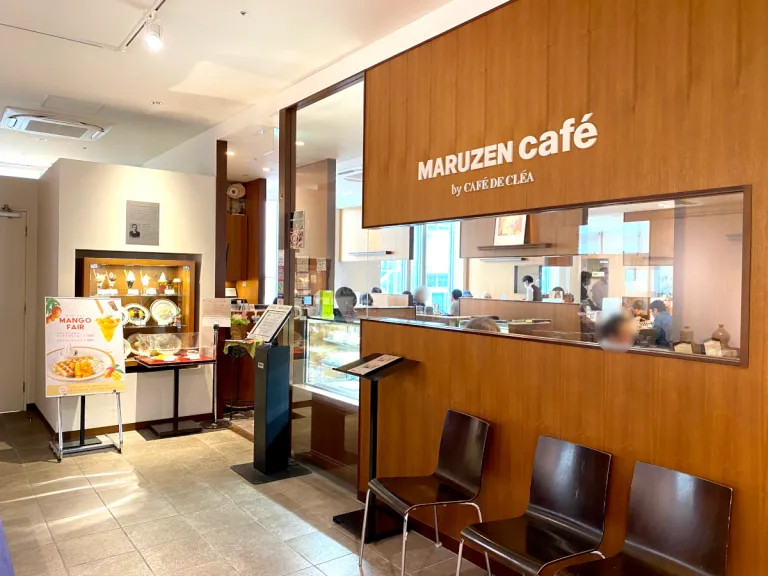
P.K. proceeded to the third floor of the Maruzen bookstore, where he found Maruzen Cafe and ordered the Pork Hayashi Rice, which cost 1,380 yen (US$9.29). Though he also felt drawn to the Premium Hayashi Rice and Hayashi Omelet Rice, he decided his priority was to try what could be the original Hayashi rice, so he abstained for now.
It only took about five minutes for his food to come out. The stew was a dark red color, not the familiar warm brown P.K. was used to. Whether or not it was the original recipe, it certainly had a dignity to it that set it apart from the Hayashi rice he’s eaten at other restaurants.

In terms of flavor, it was somewhat acidic and somewhat sweet, and still quite rich. The sweetness wasn’t the cloying kind, either, which actually made it feel quite sophisticated. There were no faults that P.K. could see, except maybe that the portion size was a bit small. Still, it was a very elegant Hayashi rice.
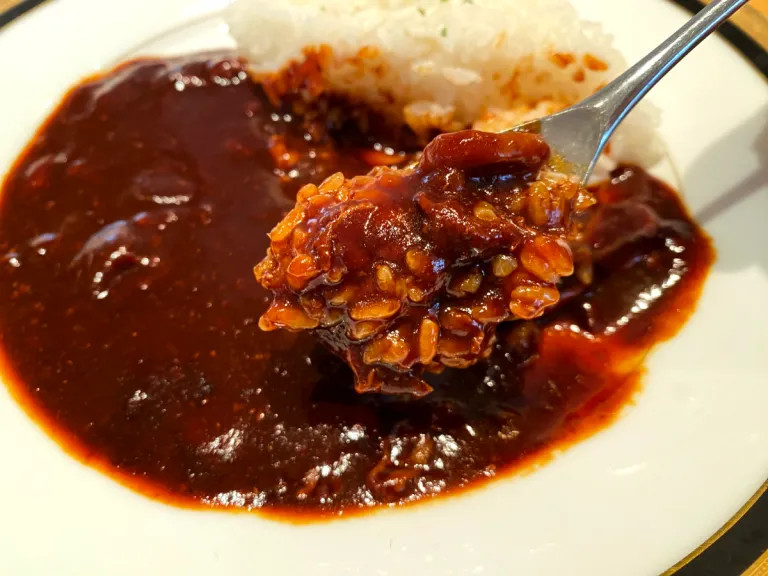
On the one hand, P.K. found it hard to believe that anyone could make something so flavorful in 1860s Japan, when the country was transitioning from the Shogunate to the modernized Meiji government, and trade (and the exchange of spices) was still limited.
Even more than any historical significance it might have, though, the important thing to living-in-the-present P.K. is that Maruzen Cafe’s Hayashi Rice is really delicious. Delicious enough, at least, that P.K. could understand why it could claim to be based on the original recipe from the dish’s creator. The cafe even sells ready-made pouches of it, so you can buy some to take home too.
If you’re interested in trying out a bit of Japanese culinary history–or at least indulging in a local legend–then definitely check out Maruzen Cafe, and if the portions aren’t enough for you, you can always top up with a triple jumbo rice bowl from a nearby Nihonbashi restaurant.
Cafe information
Maruzen Cafe / 丸善カフェ
Address: Tokyo-to Chuo-ku Nihonbashi 2-3-10 Nihonbashi Maruzen Tokyu Building 3F
東京都中央区日本橋2-3-10 日本橋丸善東急ビル3F
Open 9:30 a.m.-8:30 pm
Images © SoraNews24
● Want to hear about SoraNews24’s latest articles as soon as they’re published? Follow us on Facebook and Twitter!

No hay comentarios:
Publicar un comentario